Behind The Scenery - Stage Management
William Buckenham - Stage Manager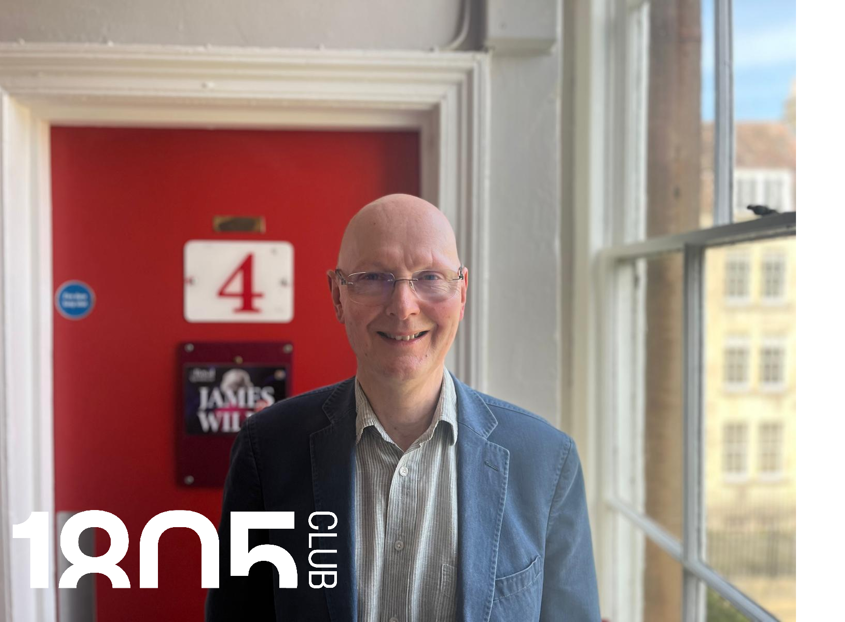
Welcome back once again to Behind The Scenery, where we interview industry professionals to get the low-down on how your theatre works!
Today we have a wonderfully detailed conversation with Deputy Stage Manager, Will Buckenham. Will has been in the industry for over 45 years and is still going strong! Whilst you may never seen him on stage, you will have seen his work in such TRB productions as Emma, 1984, A Man For All Seasons, Noises Off and many more over the years. You may also have heard his famously silky-smooth voice ushering you back to your seats during the interval (he is a favourite of all the staff here at TRB).
As Deputy Stage manager, Will is responsible for 'calling' the show, meaning that every lighting cue, scene change, sound effect or visual trick on stage only happens when Will says 'go'. He does this job tucked neatly up in 'prompt corner' which is downstage-left and contains screens to watch the action on stage and a microphone in which he can communicate with the rest of his team and the technical crew. Like a shadowy conductor, Will is one of many unsung heroes of the team, who eschews the spotlight, but still has a huge impact on what you see on stage every day.
In this interview, Will finally sheds light on his life and career, explaining his craft in elegant detail and giving you a loving portrait of life behind the scenery....
Images below:
Image 1 - The Main House stage
Image 2 - The view of 'prompt corner' from the Main House stage
Image 3 - Prompt corner close up (where Will does his magic)
Image 4 - Stage right wing, Main House
Image 5 - Stage left wing, Main House
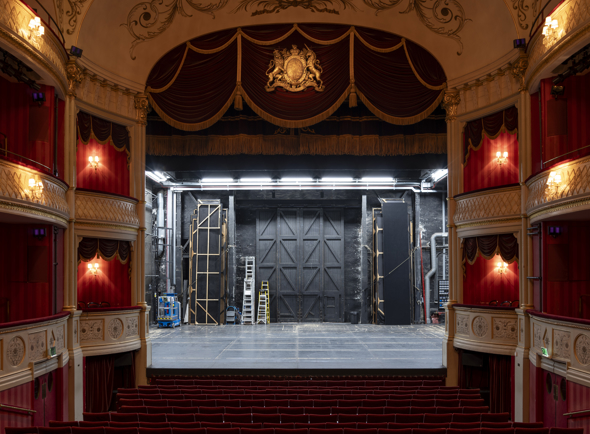
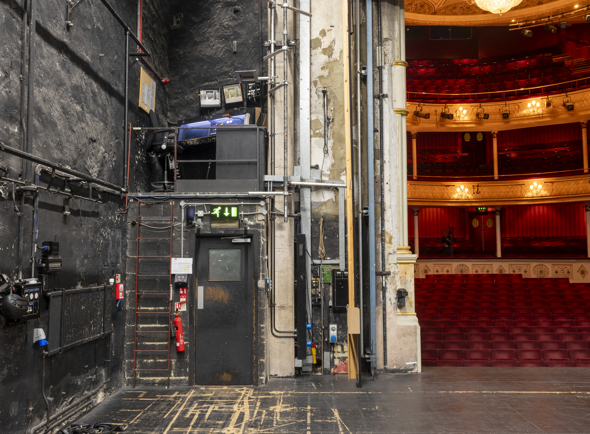
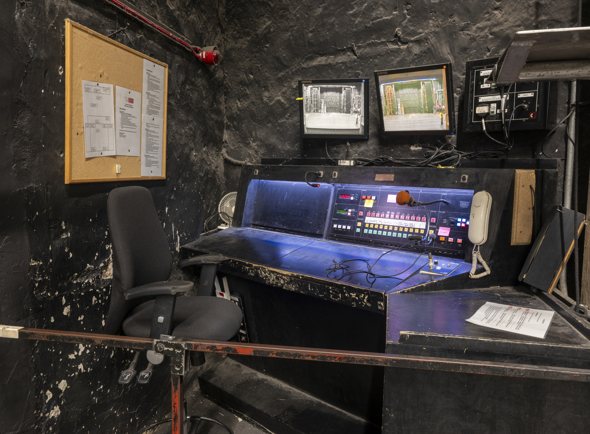
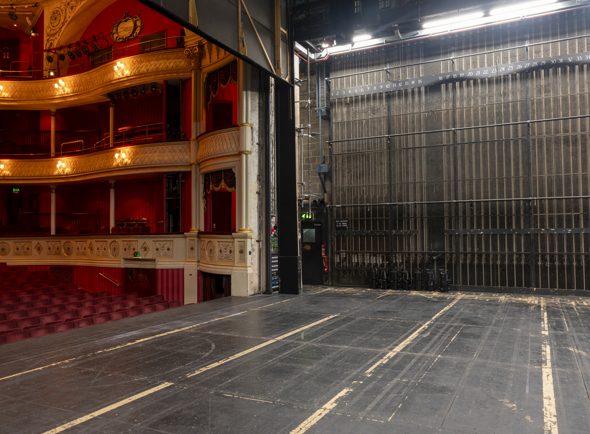
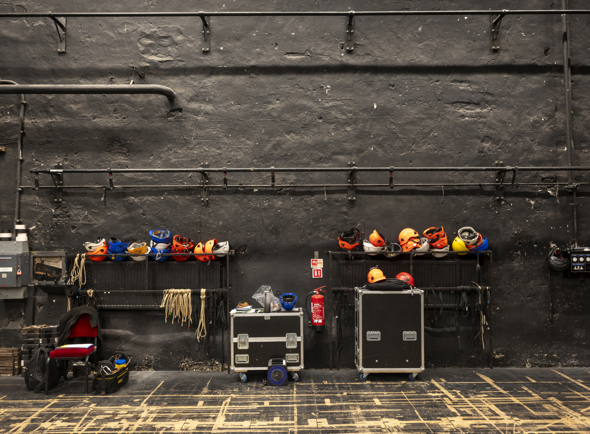
Full name, job title years spent working in the theatre industry?
William Buckenham,
Deputy Stage Manager,
From 1979 and counting...
What was your way into the theatre industry? Did you know exactly what you wanted to do from day one? Where you always aiming to be a stage manager?
From the age of seven, I had a puppet theatre. Spent most of my free time mounting little shows. Painting back cloths, building sets.
I could cheerfully torment family and friends with the painful results for hours; captive, but so patient when asleep.
We had a well-equipped theatre at school; it was here that I first encountered ‘calling’ a show from prompt corner. I was well and truly hooked. While at theatre school, I worked on stage crew at Richmond Theatre. A busy receiving house, with weekly touring shows, a springboard for the west end.
Richard Condon, Manager of my local theatre in Norwich, gave me my first professional job as Assistant Stage Manager for one of his summer seasons.
Then, a year in rep at Swansea. This was two-weekly, meaning that the first play rehearsed for two weeks. Once up and running, the next show went into rehearsals, and so on.
As an ASM, I would spend the day sourcing and making props for the show in rehearsal, while running my ‘track’ for the show in the evening.
Rep was a fantastic training ground for actors and stage management.
Since then, I have worked as Deputy Stage Manager, (DSM), for independent commercial Producers, touring and west end.
What does the DSM do? What makes it different from being a CSM or ASM?
The Deputy Stage Manager (DSM) is responsible for creating the prompt copy for the show. Also known as ‘the book’, it becomes the bible from which the show is ‘called’ or cued. During rehearsals, all the ‘blocking’; moves made by actors around the set, are recorded in the book. Any agreed changes in dialogue, or re-writes are recorded. Constant amendments will continue throughout the process, even into previews, so pencil and erasers run hot.
If it is a new play, the prompt copy is often the text that will go to the publishers.
Technical cues all go into the book. Lighting, sound, flies, automation, video. Cue lights for actor’s entrances. Paging calls for the actors, technicians, wardrobe and front of house are all included. Much of this part of the process happens when we move from the rehearsal room onto stage for the ‘tech’.
During the show, I am based in prompt corner, communicating with the technicians over headsets, calling lighting and fly cues. I also operate the sound effects. From here, I can page the actors and front of house.
During rehearsals, each day’s calls are liaised with the Director, then circulated by the CSM to all departments, along with my rehearsal notes. Calls will be for the cast but might also include fittings (wardrobe and wigs), publicity interviews, weekly production meetings involving the entire creative team.
My rehearsal notes for each day will include lighting, sound, wardrobe, designer, production manager. All need to be informed of anything that comes up during the day’s sessions; an additional prop, a pocket in a costume, a door on the set needs to open outwards instead of inwards, a fight director may be required etc.
The Company Stage Manager (CSM) bridges the gap between management and company. They administer, liaise, are responsible for keeping check on hours, payroll, the all-important box office returns, petty cash, health and safety, pastoral care. On tour, they might oversee putting the set into each venue, possibly doing re-lights. They may even have a ‘track’ of cues during the performance.
The Assistant Stage Manager (ASM) is responsible for props during rehearsals and in performance.
Lots of setting lists, maintenance, making sure that everything is in the right place, keeping track. Prop tables will have been marked up, so that each prop has its own space. Actors will then know exactly where to find things in dimly lit wings.
The ASM will have a busy track of cues during the show, and probably be ‘book cover’ for the DSM. They will have a lot of setting-up to do before the show. On tour, everything must be packed up carefully for the move to the next venue. There may be show-shopping and food prep to deal with.
How does your role differ from rehearsal to performances?
In the rehearsal room, much of my time is spent in paperwork. Making up the book, notes, calls. Actors will be coming off their scripts, so will need prompting occasionally. Running lines with people.
Once on stage, it becomes more about running the show. Actors are very good at helping each other, should a tricky situation arise. A prompt from me is always a last resort.
Can you take me through a typical week?
On tour, we usually ‘get in’ to a venue on Monday morning. The set arrives on trucks, along with the lighting, sound, wardrobe and props.
The CSM will allocate dressing rooms. The venue technicians along with our team will put in the lighting, build the set and get everything rigged.
The ASM will unpack props and set up for the show.
The wardrobe manager will join and prepare the costumes, putting them into dressing rooms.
I unpack and set up sound, then help with props and set.
The cast will probably be called for 5:00pm to be on stage, check out the geography of the new space and warm up.
During the week, there will be evening shows, a mid-week matinee, an understudy rehearsal, and on Saturday, a matinee followed by the evening show, and the ‘get-out’. Then we get to do it all again.
What part of the job do you love? Is there still romance in theatre?
Being part of a good stage management team, seeing everything start to take shape.
It’s always a joy to return to favourite theatres and work again with familiar people. Many have become friends, so there’s plenty of catching up to do.
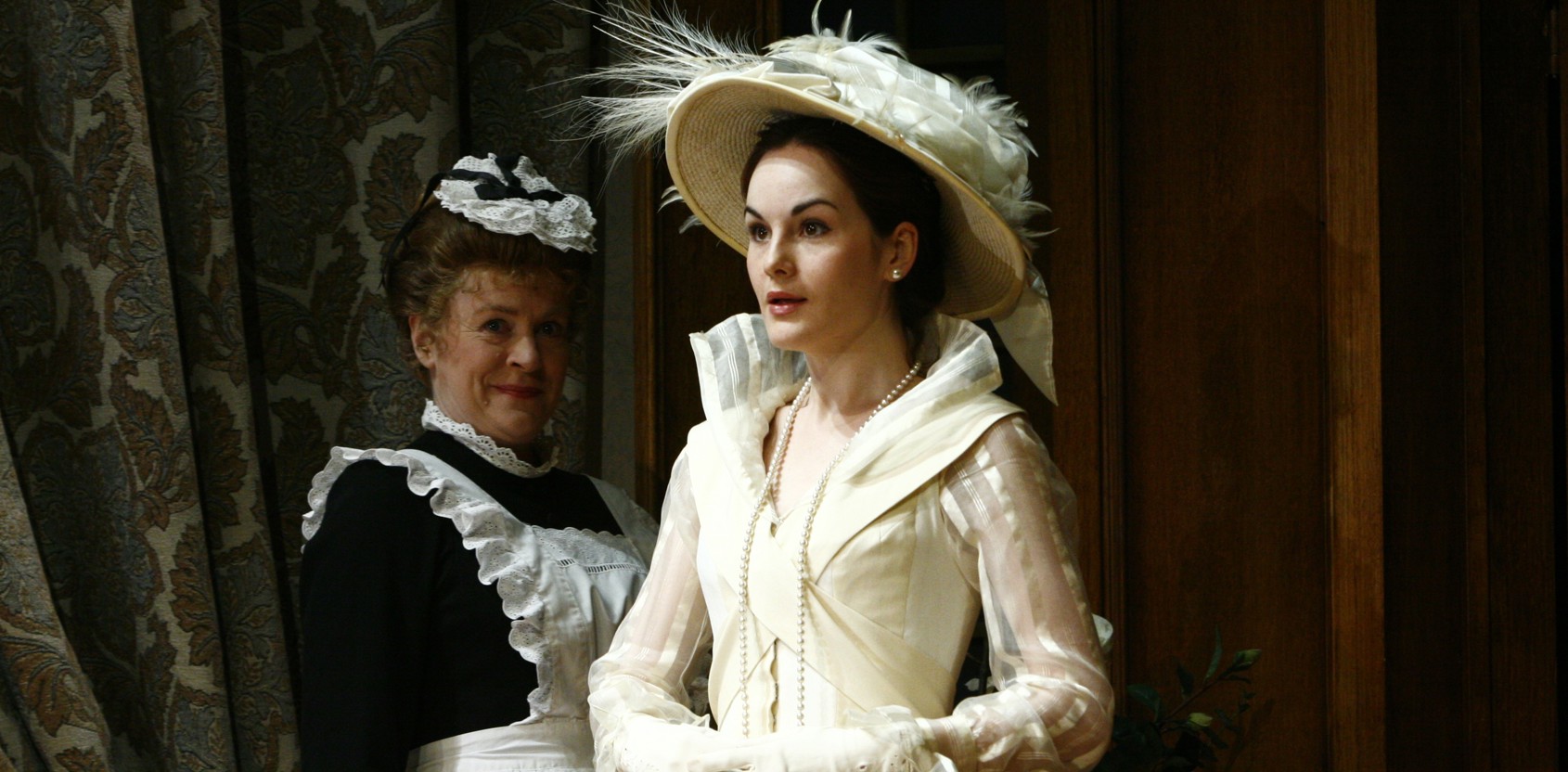
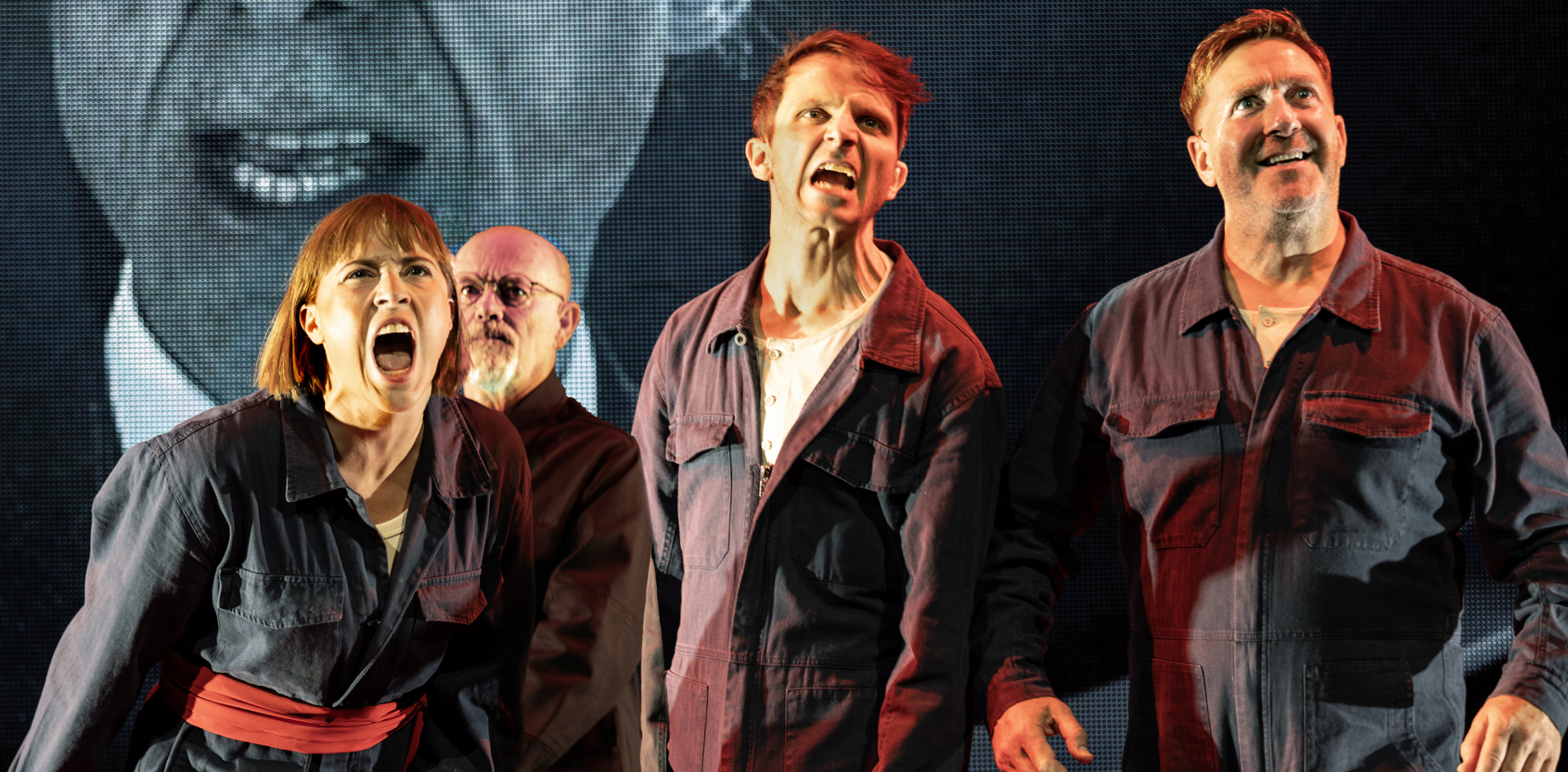
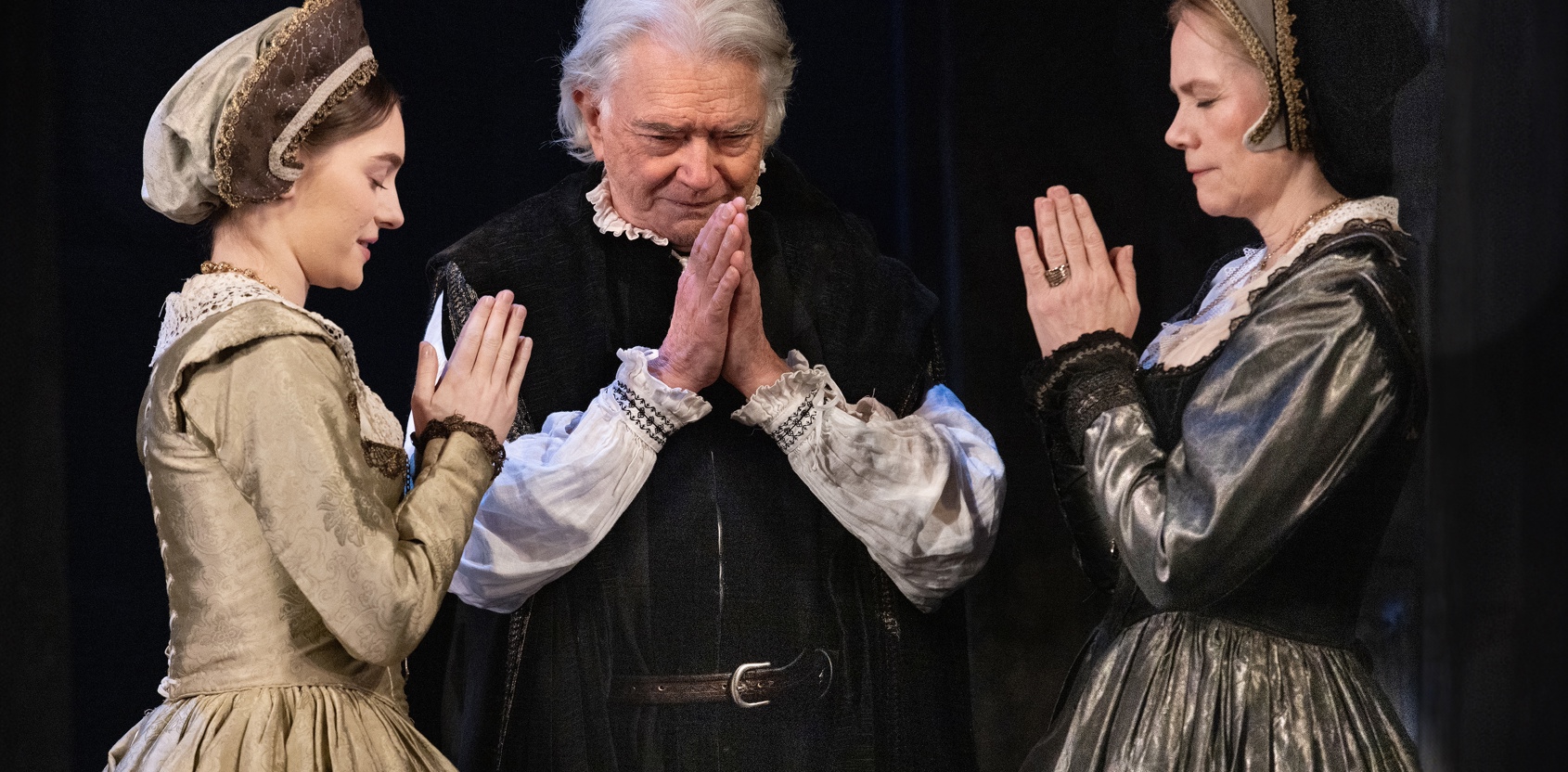
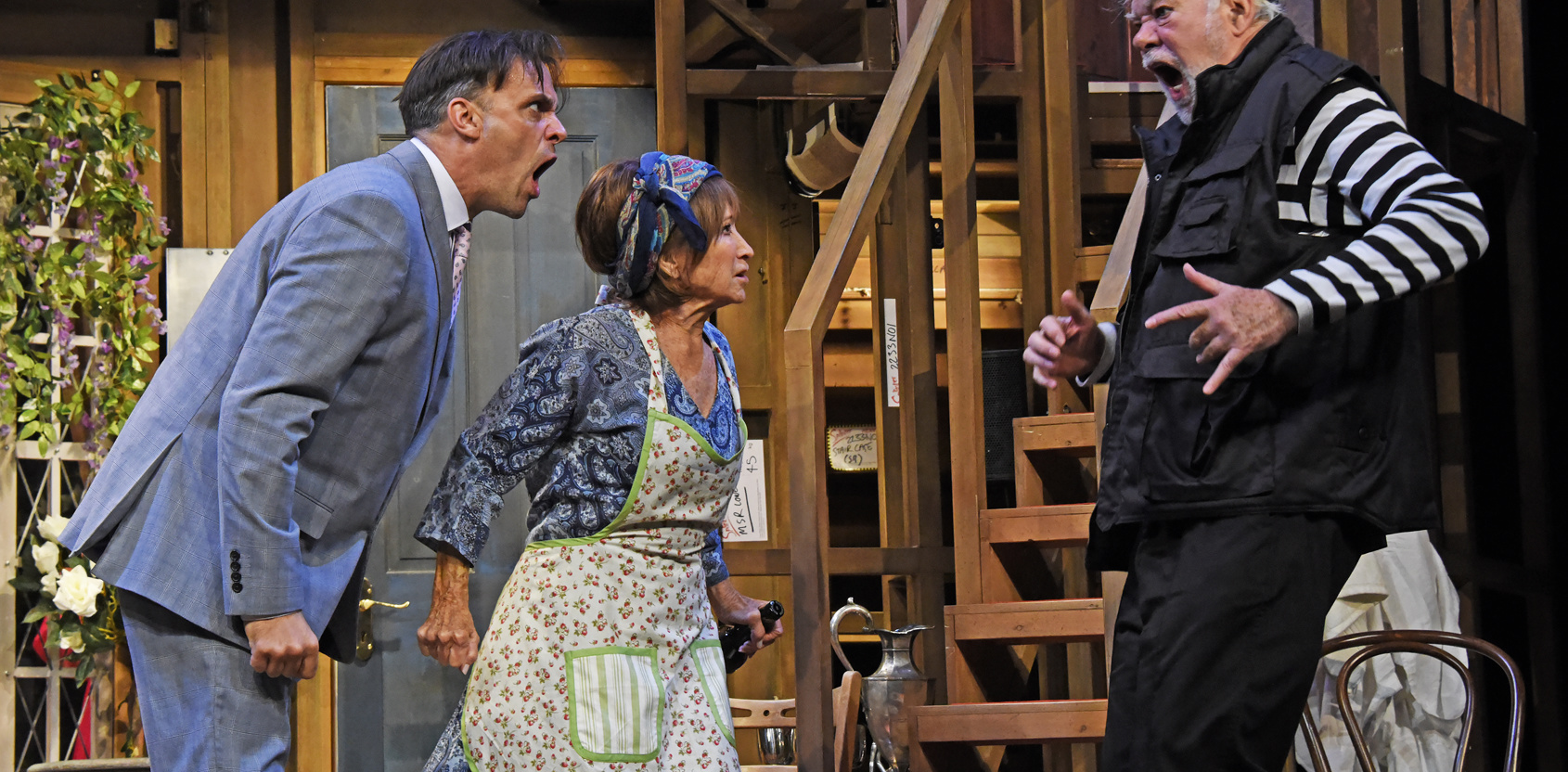
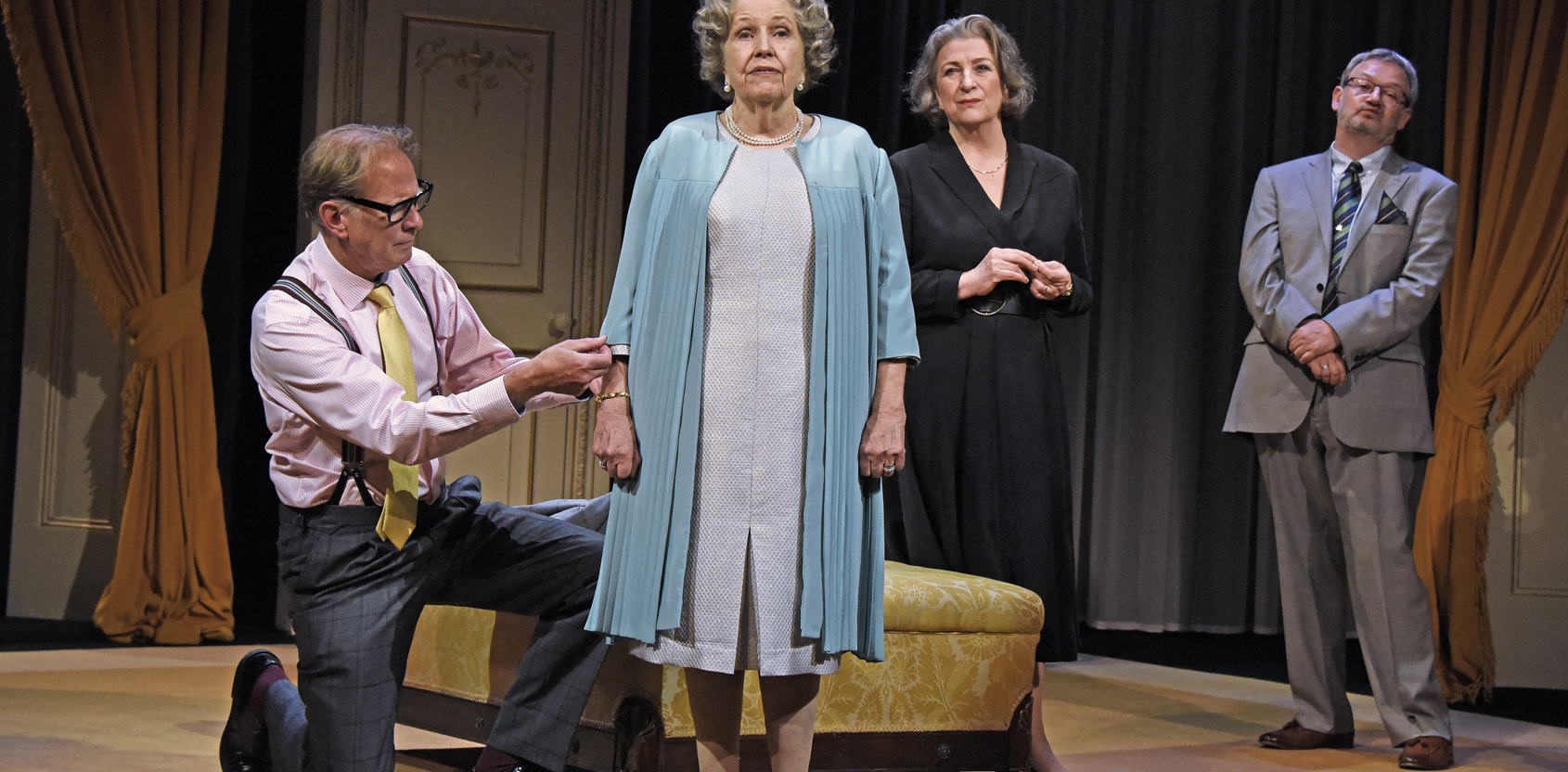
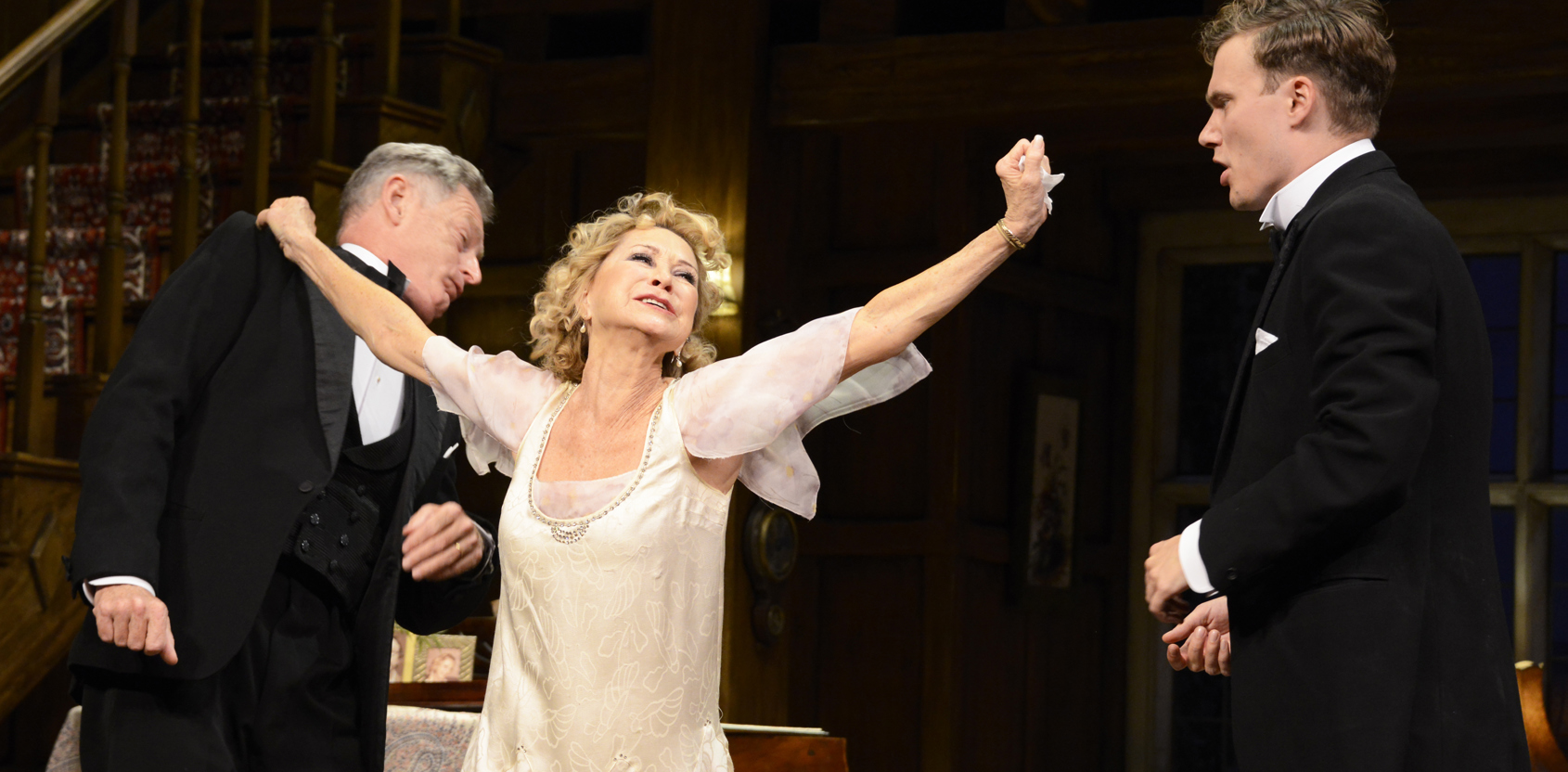
How has your job changed over the years? Is a DSM different in 2025 to 2005? Or 1995?
Changes in the job have been continuous. The basic principles remain, but technically more advanced. DSMs are more likely to operate sound effects/music, projection or video from prompt corner.
When did you first work at TRB? How has it changed? How has it stayed the same?
My first visit to TRB was with a tour, in the early 80’s. Since then, I’ve been fortunate to return almost annually, either with a tour, or to work on a TRB production. There’s a reassuring sense of continuity. The Ustinov and Egg have opened, and I have enjoyed working in both. Bath has always had a great crew, so you know you’re in capable hands. Many actors, directors and creatives return with different productions, so it’s lovely to be able work with them again. Wonderful audiences.
The city is a gem. So much to explore.
Which recent TRBP productions have you worked on?
Most recently, I worked on ‘A Man for All Seasons’, ‘1984’, and ‘Noises Off’.
A significant number have transferred to the west end.
‘Pygmalion’ went to Hong Kong, and ‘Hay Fever’ to Australia.
Any nightmare shows? Things that went horribly wrong? Actors fluffing lines? Crew bringing on the wrong set? Show stops?
There is always an element of risk with a live show.
Back in the 80’s, stage management were often required to understudy. I came to TRB with a tour, was DSM, also covering a small role in an early scene of the play. The set was a Georgian drawing room, a conservatory upstage centre with tall, narrow glazed doors. Going on at short notice; so relieved was I to get through the scene, I strode confidently up to the door to exit. Vigorously grasping the handle, turning to wave goodbye to the other character; it came upon me that the door was no longer attached to the set. What Now? In one movement, I pivoted the door under my arm and carried it surfboard-like off through the conservatory. The leading lady was left with an expression of bemusement and barely suppressed hilarity.
Where are you now and what is next for you?
I have just finished a 2 week run of 'Emma' in the Main House and will now be touring with that production until mid-November
Will, it's been an absolute joy to host you once again, thank you for talking with us today!
Interview: Nicholas Fleming
Portrait photo: Nicholas Fleming
Backstage images: James Arthur Allen, Stephen Vaughan
Production photos: Mark Douet, Simon Annand, Nobby Clarke


